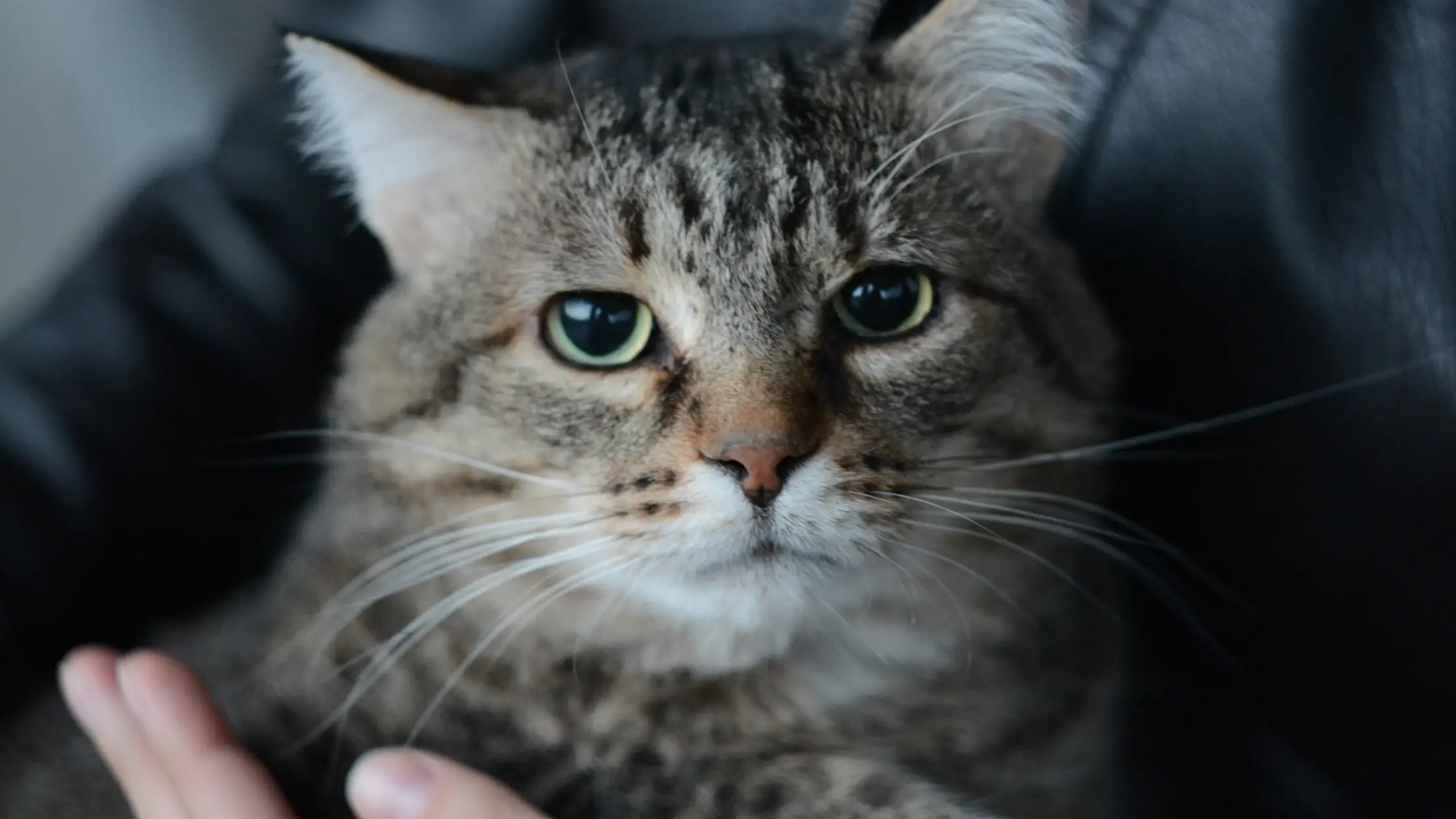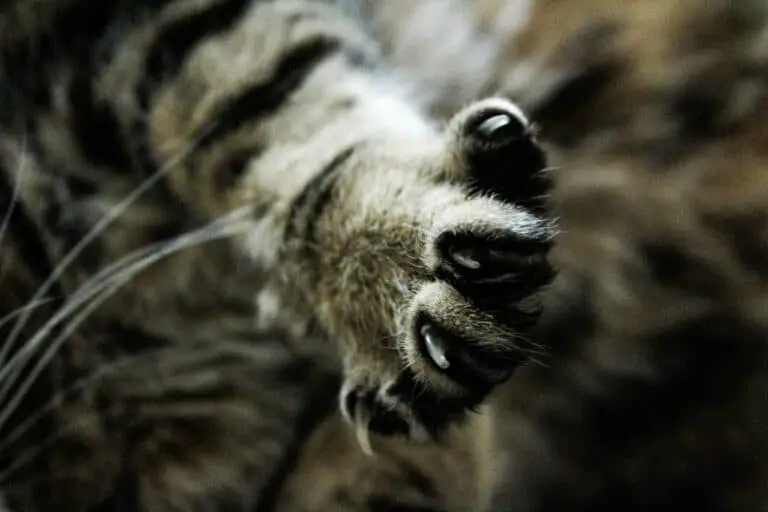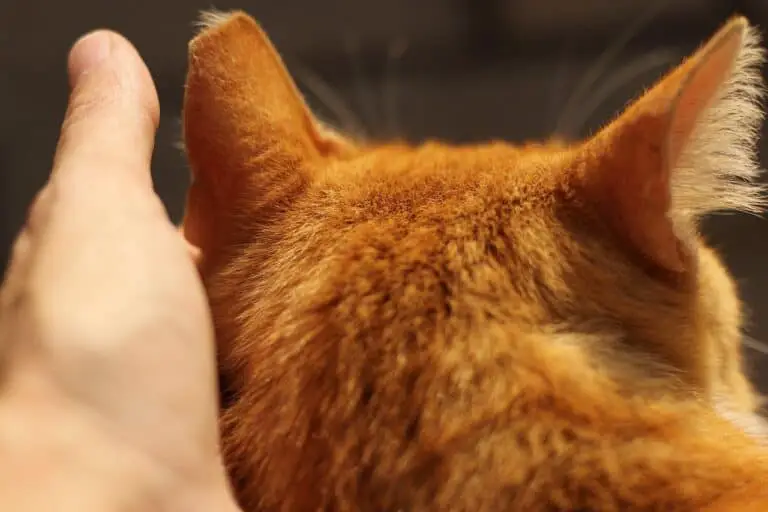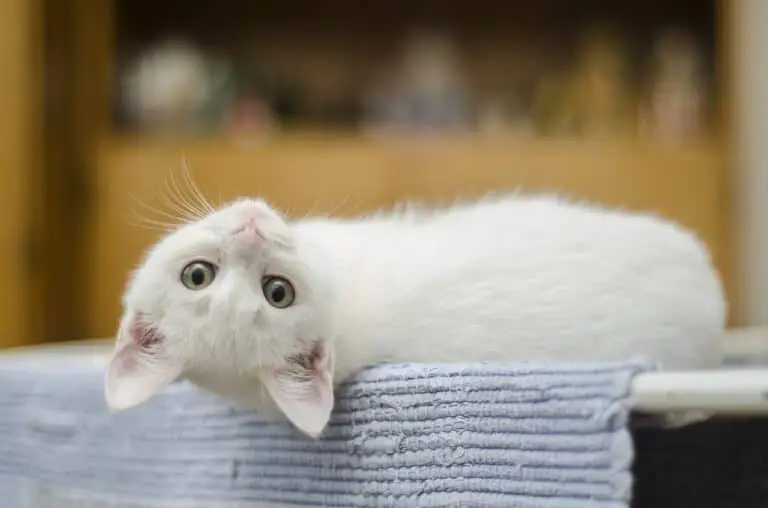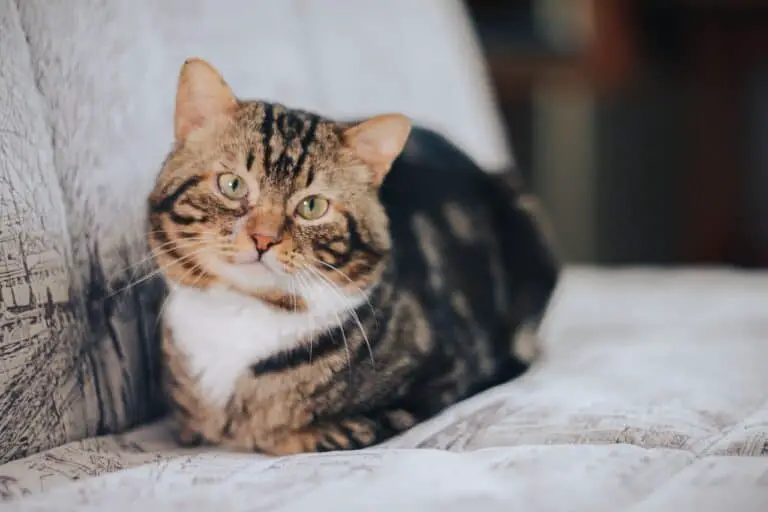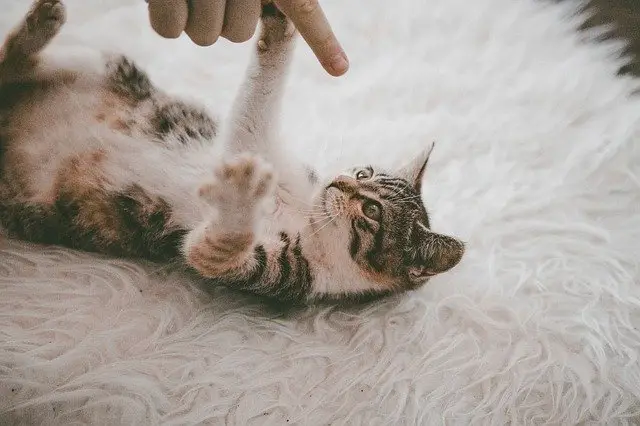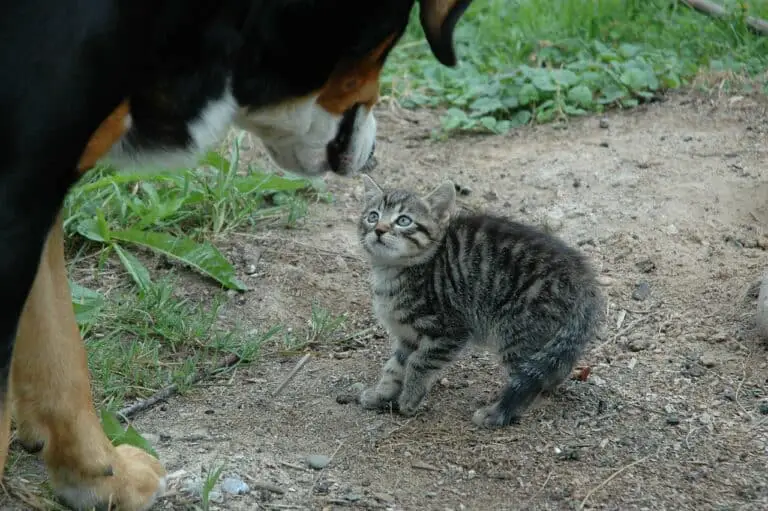DO CATS GRIEVE FOR THEIR OWNERS? 5 UNMISTAKABLE SIGNS
Do cats grieve for their owners? Although one might think that cats do not care about people and only want food for their human companion, the evidence says that cats become attached and bond with their caregivers.
Cats can exhibit signs of grief when their owners pass away. Some common signs of distress in cats include changes in eating habits, loss of interest in play or social interaction, vocalizing more than usual, and changes in sleep patterns. Some cats may also become more clingy or withdrawn.
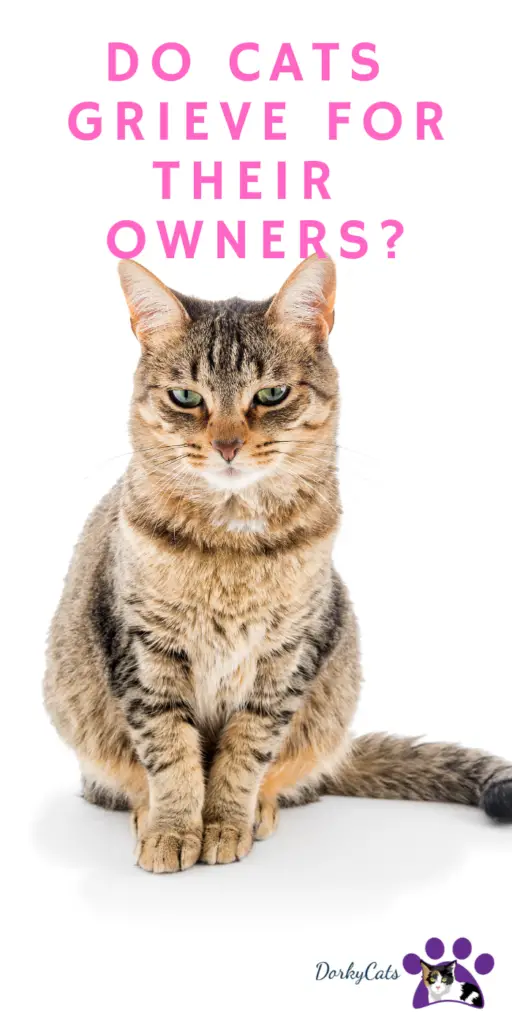
DO CATS GRIEVE FOR THEIR OWNERS?
Cats are known to form strong bonds with their owners and can become deeply attached to them. Cats can exhibit signs of grief when their owners pass away or are no longer around, just like any other animal or human.
Some common signs of grief in cats include:
- Changes in eating habits
- Loss of interest in play or social interaction
- Vocalizing more than usual
- Changes in sleep patterns
- Some cats may also become more clingy or withdrawn
It’s important to note that not all cats will exhibit these behaviors, and some may show signs of grief for only a short period.
However, it’s clear that cats can feel a range of emotions, including sadness and grief, and may mourn the loss of their owners in their own way.
Remember that a cat’s life can change significantly when its owner passes away, increasing stress and sadness.
HOW CAN THE LIFE OF A CAT CHANGE WHEN THE OWNER PASSES AWAY?
The life of catS can change significantly if their owner passes away.
Some of the ways that a cat’s life may change include:
- Loss of companionship: Cats can form strong bonds with their owners, and losing their human companion can be a significant emotional blow.
- Changes in routine: A cat’s daily routine may be disrupted if its owner dies. They may no longer have access to the same food, water, and shelter as before, and their daily schedule may be altered.
- Changes in the living environment: If the cat’s owner was the sole occupant of a home or apartment, the cat might need to be relocated to a new home or shelter.
- Changes in caretakers: If the cat’s owner was the primary caregiver, they might need to adjust to a new caretaker or living situation.
- Increased stress and anxiety: Losing an owner can be a stressful and traumatic experience for a cat, and they may experience increased stress and anxiety.
- Possible abandonment: In some cases, if there are no plans for the cat’s care after its owner’s death, the cat may be abandoned or left to fend for itself.
It’s important to plan and make arrangements for your cat’s care if something happens to you.
This can include designating a caregiver or caretaker, creating a will or trust that outlines your wishes for your cat’s care, and ensuring that your cat has access to food, water, and shelter in your absence.
WHAT DO CATS DO WHEN THEIR OWNER DIES?
When an owner dies, cats can experience various emotions and behaviors, similar to how they would react to losing a sibling or another cat.
Some cats may eat less or more than usual after losing their owner. Cats may become withdrawn or less interested in playing or socializing with other animals or people.
Some cats may meow or vocalize more frequently after losing their owner or sleep more or less than usual.
Cats may experience increased stress and anxiety, sometimes leading to inappropriate elimination.
It’s important to give your cat time to adjust to the loss of its owner and provide plenty of love and attention during this difficult time. Providing a consistent routine and a comfortable environment can also help them feel more secure.
HOW TO HELP A GRIEVING CAT WHEN THE OWNER DIES?
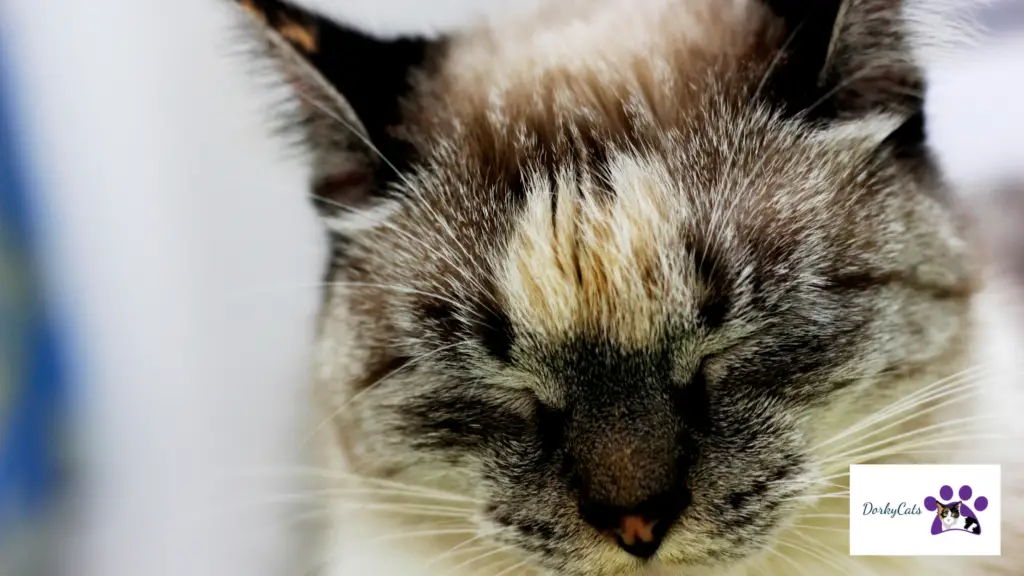
Losing an owner can be a traumatic experience for a cat, and it’s important to provide them with plenty of love and support during this difficult time.
Here are some ways to help a grieving cat:
MAINTAIN A CONSISTENT ROUTINE
Keep your cat’s daily routine as consistent as possible. For example, feed them simultaneously, clean their litter box, and maintain regular play and cuddle sessions.
SAFE ENVIRONMENT
Ensure your cat has a comfortable and secure place to sleep and retreat when they need alone time.
SPEND EXTRA TIME WITH THE CAT
Spend extra time with your cat: Provide plenty of love and attention to your cat. Spend extra time playing, cuddling, and grooming them.
ENCOURAGE EXERCISE AND PLAY
Playtime can help your cat release stress and anxiety, so encourage them to play with toys and engage in activities they enjoy.
PHEROMONE PRODUCTS
Pheromone products, such as Feliway, can help reduce stress and anxiety in cats. Consider using these products to help your cat feel more relaxed and calm.
ASK THE VET
If your cat’s behavior persists for an extended period or begins to interfere with its daily life, it’s a good idea to consult your veterinarian. They may be able to provide additional support or suggest ways to help your cat cope with their grief.
Remember that every cat is different, and it may take time for your cat to adjust to the loss of their owner. However, you can help your cat through this challenging time with patience, love, and support.
HOW LONG DO CATS GRIEVE?
The length of time a cat grieves can vary depending on the individual cat and its relationship with its owner. Some cats may only show signs of grief for a few days or weeks, while others may grieve for several months.
In general, it’s important to give your cat time to process their emotions and adjust to the loss of their owner. Providing a consistent routine and plenty of love and attention can also help them feel more secure during this difficult time.
CAN CATS SENSE THE DEATH OF ANOTHER CAT?
Cats can sense the death of another cat and may exhibit changes in behavior or temperament as a result. Cats are highly attuned to changes in their environment and can pick up on subtle cues that signal the decline or loss of another cat.
When a cat senses that another cat has died, it may exhibit signs of grief or loss, similar to how it would react to the loss of its owner.
This can include different eating habits, loss of interest in play or social interaction, vocalizing more than usual, and changes in sleep patterns.
It’s also worth noting that some cats may exhibit more aggressive or territorial behavior after the death of another cat, as they may feel the need to defend their territory or assert dominance over other cats in the household.
WHAT DO CATS DO WHEN THEY SENSE DEATH IN HUMANS?
Cats are susceptible to changes in their environment and may exhibit changes in behavior when they sense that a human is nearing the end of their life.
However, it’s important to note that there is limited scientific research on this topic, and much of the evidence is anecdotal.
Some people have reported that their cats became more affectionate or attentive in the days or weeks before their death. Others have said that their cats became more distant or avoided them altogether. However, in some cases, cats have been known to stay close to their owners during their final moments.
It’s worth noting that cats may also respond to changes in their owners’ behavior or physical condition rather than an immediate sense of impending death. For example, they may pick up on cues such as changes in breathing or scent or respond to changes in their owners’ emotional state.
WOULD MY CAT CARE IF I DIED?
Cats can form strong bonds with their owners, and many become deeply attached to their human companions. Therefore, if their owner were to pass away, the cat could exhibit signs of grief or sadness. In other words, your cat would care if you died.
However, it’s important to note that every cat is different. The strength of the bond between a cat and its owner can vary depending on the cat’s personality, the amount of time they spend together, and the quality of care and attention they receive.
While it’s unclear whether cats fully understand the concept of death, they may be able to sense that their owner is no longer present or behaving in their usual manner.
As a result, they may experience confusion, anxiety, or distress in response to these changes, manifesting in various behaviors such as increased vocalization or changes in appetite and grooming habits.
FREQUENTLY ASKED QUESTIONS
Do cats know when their owner dies?
It’s difficult to say with certainty whether cats know when their owner dies, as we can’t ask them directly. However, there is evidence to suggest that cats may be able to sense changes in their environment and the behavior of those around them, including their owners.
Cats have a keen sense of smell and may be able to detect changes in their owner’s scent or changes in the environment associated with death or illness.
Additionally, cats are very attuned to the behavior of those around them. They may pick up on subtle cues, such as changes in vocal tone or body language, indicating something is wrong.
How do cats grieve?
While it’s difficult to know precisely how cats experience grief, some signs and behaviors suggest they are grieving. Grieving cats may eat less or lose interest in food altogether. In addition, grieving cats may sleep more or less than usual.
They may meow more often or loudly than usual and groom themselves excessively or stop grooming altogether. Grieving cats may become more reclusive or hide in unusual places. They may become more aggressive or destructive, potentially damaging furniture or household items.
Cat clingy after the other cat died; why?
When one cat in a multi-cat household dies, the remaining cat or cats may exhibit changes in their behavior, including becoming more clingy or needy. This is because the surviving cat may feel a sense of loss and seek comfort and reassurance from their human caretakers.
Cats form strong bonds with each other, and the loss of a companion can be a significant emotional blow. In some cases, the remaining cat may also be grieving the loss of their companion and seeking solace from their human caretakers as a result.
To help the surviving cat cope with the loss of their companion and the changes in their environment, it’s essential to provide plenty of love, attention, and comfort.
Do cats get sad when their siblings die?
Cats can significantly form strong bonds with their siblings if they have grown up together. When a sibling cat dies, the surviving cat can exhibit signs of grief or sadness.

